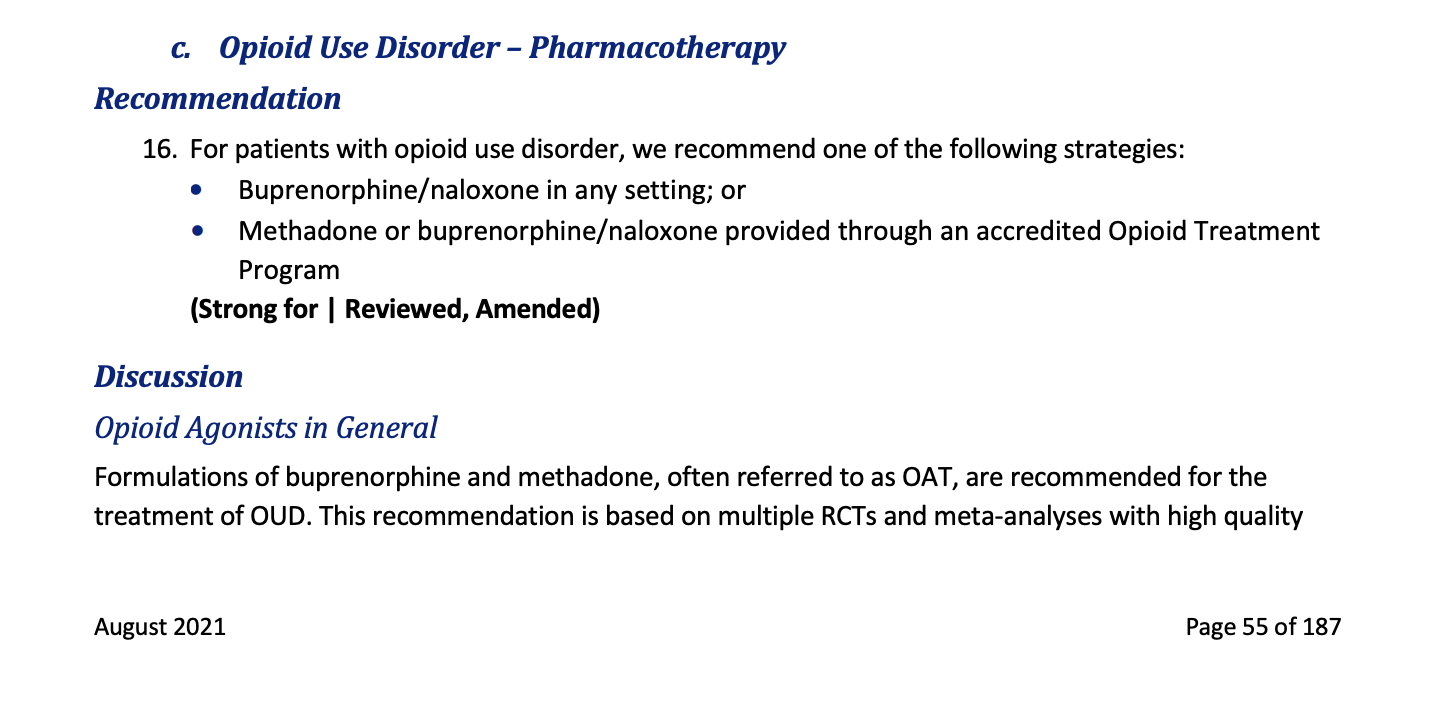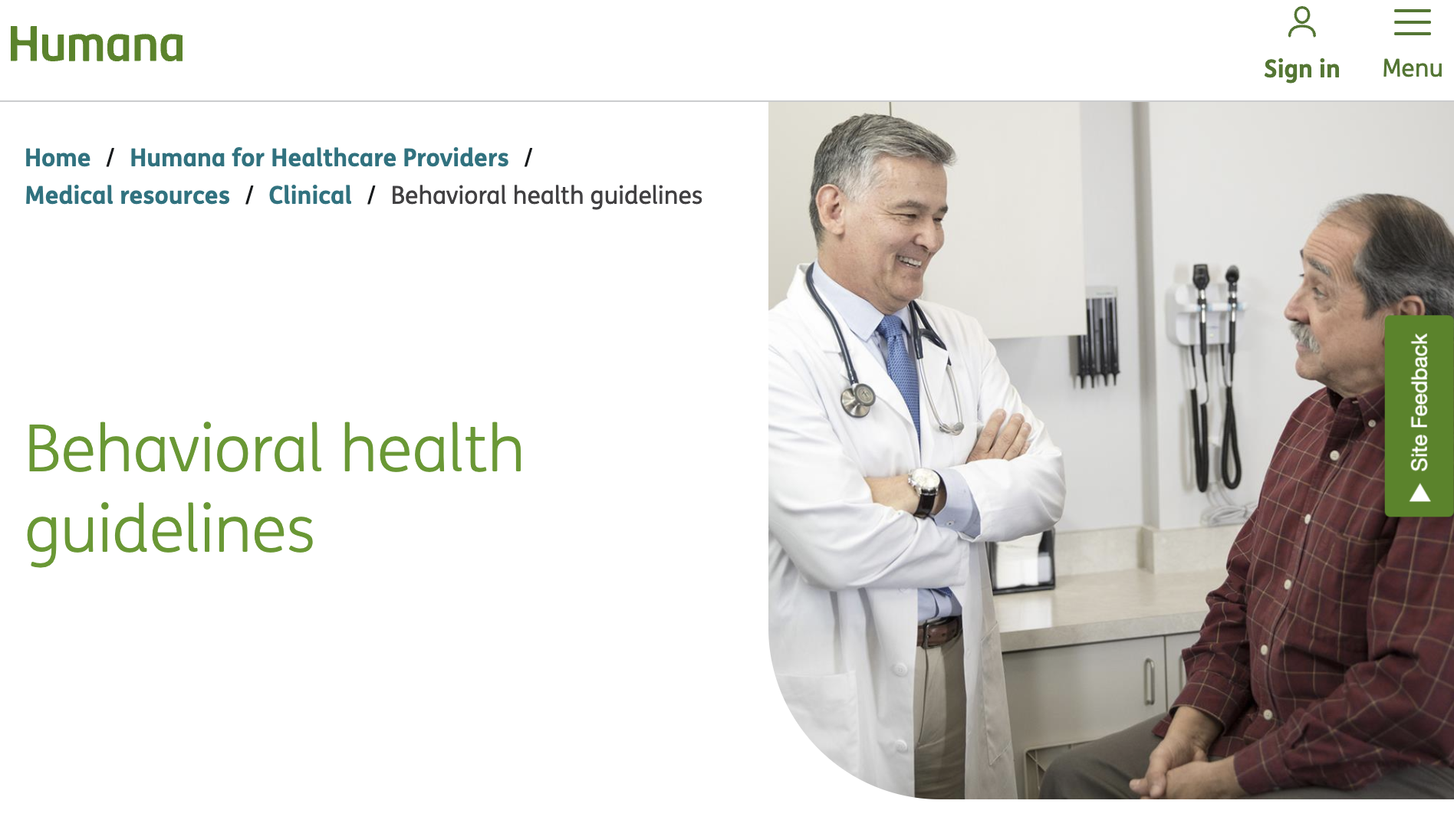Humana is the third largest insurance provider in the United States. Generating over 77 billion dollars in annual revenue, this for-profit managed health care industry giant is difficult to miss in an addiction treatment billing department. If you’re processing claims for addiction treatment, then you’re dealing with a lot of Humana’s clinical guidelines for behavioral health day in and day out.
But what are Humana’s clinical guidelines for behavioral health? Who wrote them? What effect do they have on the success of addiction treatment claims?
Today, we’ll look closer at how Humana’s clinical guidelines for behavioral health determine what separates a successful addiction treatment center insurance billing claim from a unsuccessful one and what you can do at your addiction treatment center’s billing department to leverage Humana’s clinical guidelines of behavioral health when you’re looking to maximize reimbursements.
What are Clinical Guidelines and How are They Used at Humana?
According to Humana, the insurance company uses clinical guidelines as a “means to standardize treatment options with the most effective interventions available.” In other words, Humana uses its clinical guidelines as a decision-making tool around what treatments, levels of care and standards of care it will consider “medically necessary” when it comes to treating Substance Use Disorder and other behavioral health conditions.
Humana’s clinical guidelines help addiction treatment centers understand what exactly Humana considers “warranted” and what it considers superfluous when it comes to addiction treatment. Clinical guidelines are the determining factor that decides what behavioral health claims Humana will reimburse and which ones it will deny.
Humana’s Clinical Guidelines for Behavioral Health Have Origins With the Department of Defense
Humana has two different clinical guidelines it uses for behavioral health: one for substance use disorder in adults, and another for substance use disorder in children and adolescents.
If you’re treating adults with SUD, when you’re working with Humana, you’ll be referencing the Clinical Practice Guideline for the Management of Substance Use Disorders, created by the Department of Defense and the Office of Veteran Affairs.
This 187 page document covers every element of addiction treatment, from screening, to patient-centered care, to mindfulness based therapies, group mutual help involvement, telehealth appointments, pharmacotherapy and psychosocial interventions.
The bulk of the document is constructed as a series of recommendations for specific clinical situations, with a level of confidence in the recommendation communicated as either “strong for,” “strong against,” “weak for,” or “neither for nor against.” The recommendations listed as “strong for” and “strong against” are the ones that behavioral healthcare providers and addiction treatment centers should pay the most attention to. These recommendations constitute the core of what Humana is looking for in addiction treatment clinical standards.
Addiction Treatment Billing Center Example: Humana’s Clinical Guidelines for Opioid Use Disorder
Humana’s clinical guidelines for OUD, based on the DoD’s standard of care recommendations, break heavily for medication assisted treatment.
In fact, Humana’s guidelines strongly warn against withdrawal management from opioids “without planned ongoing pharmacotherapy treatment.” In other words, Humana does not want to see providers putting patients with OUD into detox programs, outpatient programs or inpatient programs without also prescribing some type of MAT medication to the patient.
You can find these recommendations on page 43 of the Clinical Practice Guideline for the Management of Substance Use Disorders:
For patients with opioid use disorder, we recommend against withdrawal management, without planned ongoing pharmacotherapy treatment, due to high risk of relapse and overdose (see Recommendations 16, 17, and 18). (Strong against | Not reviewed, Amended)
Understanding the Difference Between Humana’s Clinical Practice Guidelines and Humana Behavioral Health’s Clinical Guidelines
While Humana’s clinical guidelines for adults with SUD are based on DoD standards of care, Humana Behavioral Health bases its adopted clinical practice guidelines (CPG) for adults with SUD on American Psychiatric Association behavioral healthcare standards.
Humana’s clinical practice guidelines emphasize the importance of screening for co-morbidities in SUD patients as well as the utility of referrals to self-help groups, such as Narcotics Anonymous and Alcoholics Anonymous.
Confused by Humana’s Addiction Treatment Clinical Guidelines? We Can Help.
You’re not the first addiction treatment professional to get fed up with understanding all of the small differences between insurance company guidelines for addiction treatment.
BehaveHealth’s Revenue Cycle Management (RCM) service includes soup-to-nuts, hyper-detailed, hands-on attention to every single component of your addiction treatment billing needs. We have strong working relationships with every major insurance company in the United States.
Even better, we’re not health care generalists. We only work for behavioral health providers like you.
Let our team of specialists handle it all:
Verification of Benefits
Utilization Review
Billing and Collections
Patient Responsibility
Denials and Appeals
Get your free trial started today and see why more addiction treatment centers prefer Behave Health.





